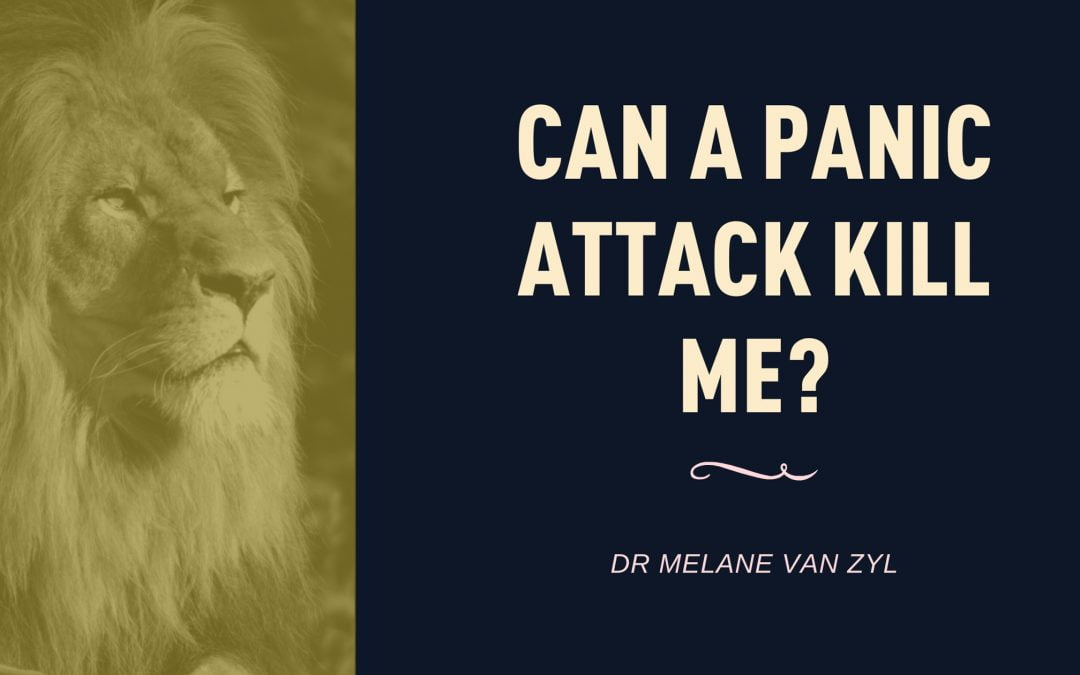People of the ask whether they can die from a panic attack. The reason that they think death might be close is that the symptoms of a panic attack are so severe. Symptoms include shortness of breath, chest pain, palpitations, and dizziness. People often go to their nearest casualty because they are scared that they are going to die.
Can panic attacks lead to death?
No. The answer is this simple. Remember- the adrenaline you make during a panic attack is trying to help you survive something that your brain interpreted as dangerous. So, the adrenaline comes from your own body, with the purpose of enabling you to become stronger and faster. The problem is that we usually do not need the adrenaline now- so we experience the effects of a panic attacks as symptoms.
Should I go to the ER for a panic attack?
Not is if you know it is a panic attack. Only if you have reason to believe you might really be ill.
I say don’t go for two reasons:
• Either it is an unpleasant experience (the doctor and staff are very busy, and they do not give you the attention you need)- and your brain will worry that you are indeed ill, but the doctors did not diagnose the illness correctly. This might set you up for another panic attack.
• The experience may be too pleasant (they give you a lot of attention and maybe an injection that calms you down quickly). This will make you want to come back if you have another panic attack.
How do I survive a panic attack?
You will survive it in any case. If you are reading this, you have survived all your panic attacks up to date. The purpose of a panic attack is to keep you alive- so you will not die. Have a look at my Infographic about Panic Attacks to see what happens in the brain.
What are the symptoms of a panic attack?
Symptoms include: (you do not have to have all of them)
• Pounding or racing heart
• Shortness of breath
• Sweating
• Chills or hot flushes
• Weakness or dizziness
• Chest pain
• Stomach pain/ upset stomach
• Tingly or numb hands
• Nausea
• Headache
What triggers a panic attack?
Panic attacks often feel like they came out of the blue- which makes them even scarier. A panic attack is triggered when your brain interprets something in your environment as dangerous, and your brain wants your body to fight, flee or freeze. The trigger might be something you are aware of (e.g., being in a crowded place), or something subtle such as a smell or sound.
Is a panic attack and an anxiety attack the same thing?
Panic is a degree worse than anxiety, but technically it is the same thing.
3 Types of panic attacks: “out of the blue”, situationally bound or situationally predisposed
Panic attacks usually come out of the blue, especially when you are relaxed. It is because your “thinking brain” is relaxed, and therefor your “emotional brain” takes over. The thinking brains knows you are safe, but your emotional brain, which is less logical, perceives a danger in the environment. Some people get panic attacks in a certain situation, e.g., in a crowded shopping mall. Some people get panic attacks after they were in a situation, or even if they anticipated being in a situation that makes them anxious (situationally predisposed)
Can I stop a panic attack?
Only if you are mindful of the small, initial changes in your body when the panic attack has not really started yet. Once a panic attack is in full swing, it will run its course. The panic attack will usually continue for a couple of minutes, even if you have a psychologist or psychiatrist talking to you or giving you medication.
How do I help someone else who is having a panic attack?
Firstly, do not get caught up in the drama. Remember, everyone survives panic attacks. Sit and talk calmly. If the panic attack has only began, it might be possible to get it to go away by distracting the person with something else. If he is already hyperventilating, sit with him and do slow breathing. Exhale slowly. Breath into a brown paper bag is old advice, but still handy.
Treatment
We will look at the treatment of panic attacks in detail in my next article.


